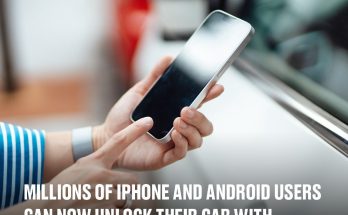
An expert hacker who uses his talents for good has revealed the password combinations you should absolutely avoid if you want to keep your details and money safe.
Being hacked online can turn your life upside down. From having your bank account drained to losing access to your Instagram or Facebook accounts.
The year of 2024 is expected to see the annual cost of cyber crime reach the unfortunate highs of £7 million.
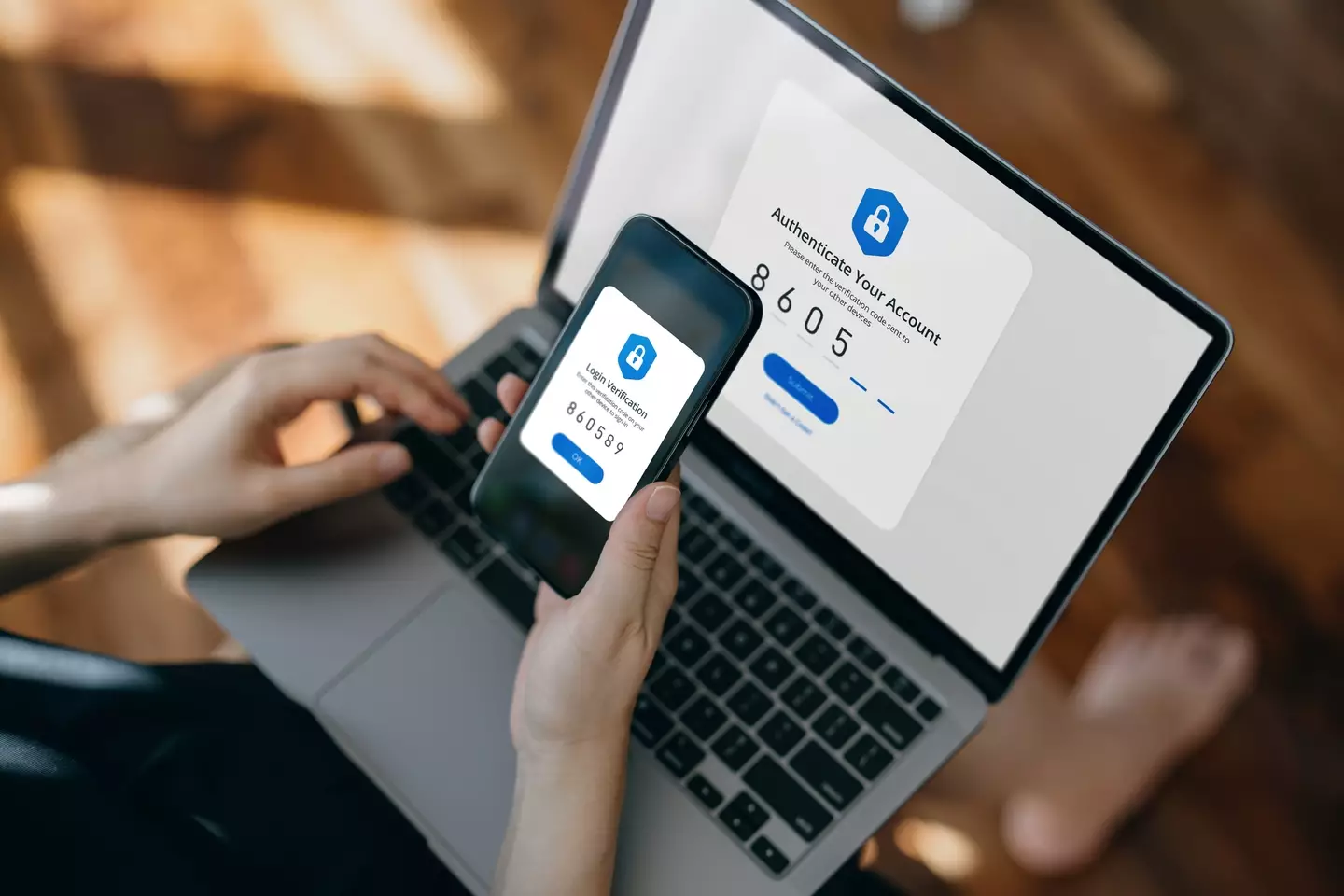
2FA can save you a big headache (Getty Stock Images)
And the future looks grim, with official estimates saying that cyber crime is only going to increase, with year-on-year increases of 15 percent expected over the course of the next two years.
One of the easiest ways hackers gain access to people’s private information of finances is through terrible password combinations. If you’re still using 123 in there, have a word.
Joe Cockroft is an ethical hacker at the NEBRC and has expert training in hacking in to complex systems, with a speciality in understanding how cyber criminals carry out attacks.
Password themes you should avoid
Cockroft said you should never use ‘identifiable information’.
He explains: “Using identifiable information, such as a favourite football team, names of family members, or the city you live in, can make passwords easier to determine.
“While this information may be easy to remember, it could also be easy for threat actors to figure out after a short time exploring your social media profiles, for example.

Choose a complicated password and don’t reuse (Getty Stock Images)
“NordPass’ Most Common Password List shows just how popular football teams are for UK passwords, as well as how many passwords lack complexity and are often a single word. Threat actors will often use a list of thousands or millions of words that help them crack your password.
“The National Cyber Security Centre advises that regularly changing passwords can cause more harm than good. Instead, it suggests that better password hygiene is more sufficient in securing accounts.
“Nevertheless, passwords should be changed immediately if a compromise is suspected or known.”
Don’t reuse passwords
You should have different passwords for your log ins across the internet for one simple reason: if hackers get in to one, you don’t want them to get in to all.
Tom Holloway, head of cybersecurity at Redcentric, says: “The fact that so many people reuse the same password on multiple accounts/services is a real worry.
“If their credentials for one site are compromised, those credentials could be used to access a wide range of password protected services with relative ease.
“The simplest approach is to use a password manager which means that you don’t need to record them elsewhere, such as in their phone, in their browser or even on a written piece of paper.
“Storing your passwords in any insecure place that doesn’t even itself require a password to access, could result in them being very easily stolen.”

You could lose all your cash if you’re hacked (Getty Stock Images)
Top passwords you should never use
According to NordPass’ Most Common Password List, these are the passwords that are cracked within seconds by expert hackers.
Going through the list, you’ll quickly come across a theme:
- 123456
- admin
- 12345678
- 1234
- 12345
- password
- 123
- Aa123456
- 1234567890
- 1234567
- 123123
- 111111
- Password
- 12345678910
- 000000
- admin123
- 1111
- P@ssw0rd
- root
- 654321
- qwerty
- Pass@123
- 112233
- 102030
- ubnt
How to protect yourself online
Complex passwords are the easiest way to keep your information safe. We’re talking a mix of numbers, symbols, and letters.
You should also turn on multi-factor authentication (MFA), also known as two-factor authentication (2FA). This is where you’ll often be sent a code via your mobile device to make sure if it definitely you logging in and not a hacker trying their luck.

We’re in the age of advanced technology and soon AI, so it’s no shock that scammers have learned every trick in the book to take advantage of unsuspecting internet users and steal information from them.
They are constantly developing new methods and ways to trick people, and one of the places that they conduct their scams is popular social messaging platform, Google Chat.
But according to experts at Trend Micro, there are five main scams that they use to get to people on the chat platform and eventually prey on them, and once you’re aware, it makes it a lot easier to stop and report them.

There are five main scams used to get to victims. (Getty Stock Photo)
Romance Scams
One of the most popular methods, romance scams involves the scammer creating fake profiles to try and build romantic relationships with their targets to create a sense of trust.
Further down the line, they ask for money for a number of reasons, perhaps saying it’s for medical purposes, travel or family emergencies – without ever meaning to meet in real life.
This scam can involve some emotional manipulation that can deceive victims and cloud their judgement.
Phishing
You’ve probably had to do a course on this at work, but in case you haven’t, this is where scammers send messages that look to be from someone you know, but it isn’t them.
It could be a friend, a family member, or even a colleague, and they will ask for sensitive information such as your address, passwords or credit card details.
Beware though, as a lot of these messages can include links with malware, that can give your laptop or device a virus, and compromise your private information.

Phishing is another thing to keep an eye out. (Getty stock photo)
Tech Support Method
This has scammers posing as Google Chat representatives or tech support members, before trying to convince you there is a problem with your account or device.
After this, they will ask for a payment or remote access to your account to ‘fix’ the issue, but Google Chat does not provide direct technical support like this, so it’s worth being aware of these messages.

People can often fall victim and pay the price financially if they share the wrong information. (Getty Stock Photo)
Fake Jobs
Google Chat is even used by scammers to offer fake job opportunities to the target.
They can often claim to be part of a real company, offering you a job with too-good-to-be-true benefits, eventually asking for a payment or sensitive information, which should again be a red flag.
Just use your common sense – if it’s too good to be true, it probably is.
Investment Scams
Finally, these scams are popular across several platforms, and Google Chat is not exempt from this.
Scammers will promise you the world, high returns on investment, a fortune that’s all yours, and ask for money to invest into these opportunities, which are fake.
It’s worth doing some research here, and being aware of investment offers that are being pushed to you without your knowing.
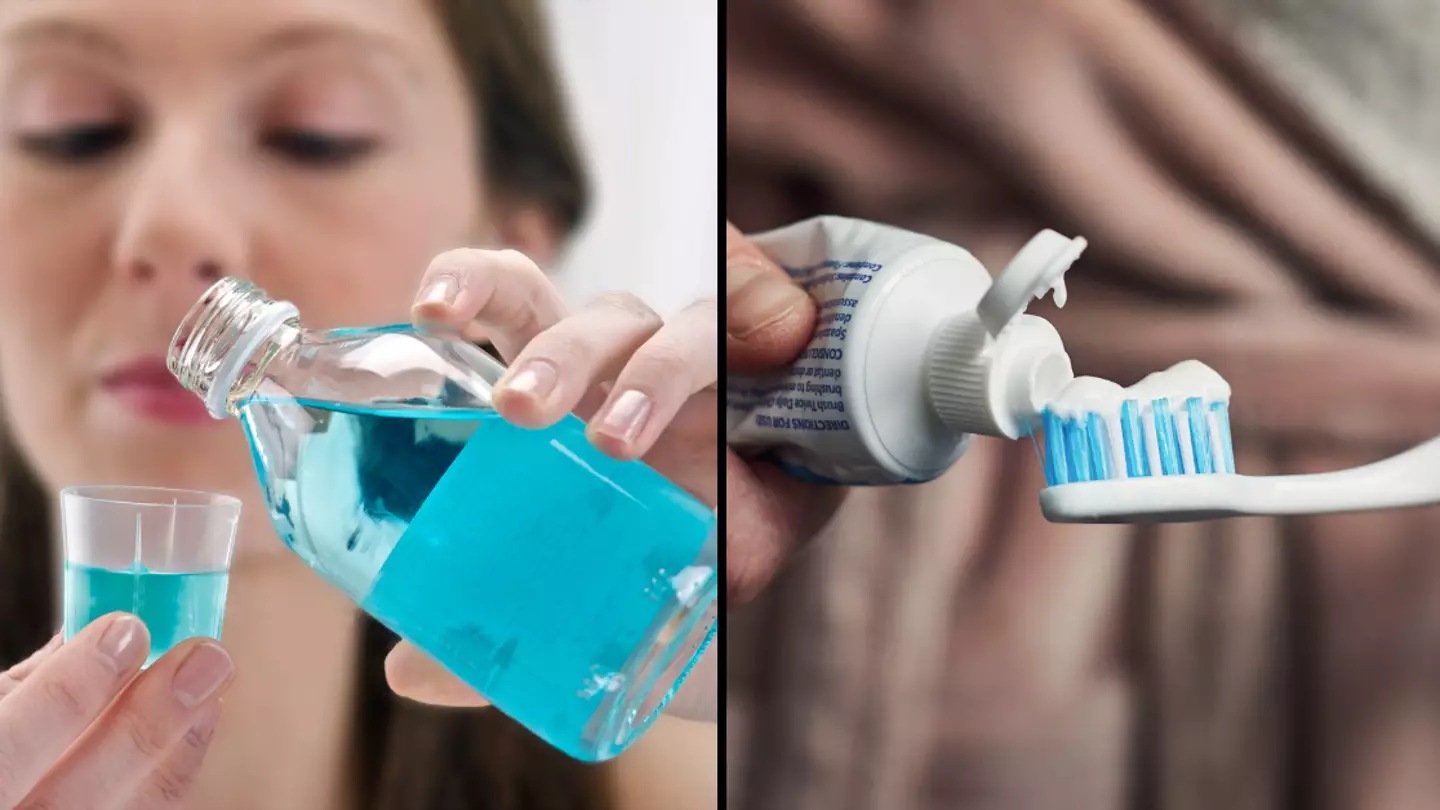
It is commonly known that using mouthwash can help protect your teeth and stave off tooth decay.
But using it half an hour either side of brushing is a massive no-no, with it leaving you wide open to self-inflicted harm.
Last week, the same dentist issued a warning to those who brush their teeth in the shower. And again, it is not good news if that is you.
On using mouthwash, Dr Zaeem explains that it all comes down to the chemicals in the toothpaste and mouthwash and what taking the latter does.
Dr Zaeem says: “Mouthwash certainly isn’t a replacement for brushing your teeth. However, if looking for fresher breath and a quick clean during the day, then mouthwash is perfect.”

You should avoid mouthwash 30 minutes before or after brushing (Getty Stock Images)
He adds: “Mouthwash should be used at least 30 minutes before or after brushing. This is because, even though some mouthwash products contain fluoride, it is usually not as concentrated as dedicated fluoride toothpaste.
“Therefore, if you use mouthwash straight after brushing, you’re essentially diluting the fluoride which reduces its protective capabilities.”
The NHS has echoed the advice of Dr Zaeem, with it an absolute no-go when it comes to using mouthwash in the immediate aftermath of brushing your teeth.

Using mouthwash after lunch is a better time (Getty Stock Images)
“Using a mouthwash that contains fluoride can help prevent tooth decay, but don’t use mouthwash (even a fluoride one) straight after brushing your teeth or it’ll wash away the concentrated fluoride in the toothpaste left on your teeth,” the health service says.
Instead, the NHS advises you to ‘choose a different time to use mouthwash, such as after lunch’.
It also recommends you do not eat or drink for 30 minutes after using a fluoride mouthwash, so that fluoride stays on your teeth.
This is incredibly important given that fluoride – which is a mineral – can greatly improve the health of your teeth by strengthening the tooth enamel, making it more resistant to tooth decay.
At the same time, it acts as a barrier between your teeth and acidic food and drink, as well as reducing the amount of acid produced on your teeth by bacteria.

Trips to the dentist will be less expensive if you look after your teeth (Getty Stock Images)
As well as avoiding mouthwash 30 minutes either side of brushing, Dr Zaeem says you should also look at changing the head on your toothbrush on a regular basis.
“A worn toothbrush or brush head removes less plaque compared to a new toothbrush or brush head,” he says.
“You should be replacing your brush heads every two to three months, this also applies for manual toothbrushes too.
“However, whilst the average is two to three months, if your toothbrush is visibly frayed you should replace it immediately, as worn bristles are less effective at removing plaque and it could be detrimental to your oral health.”
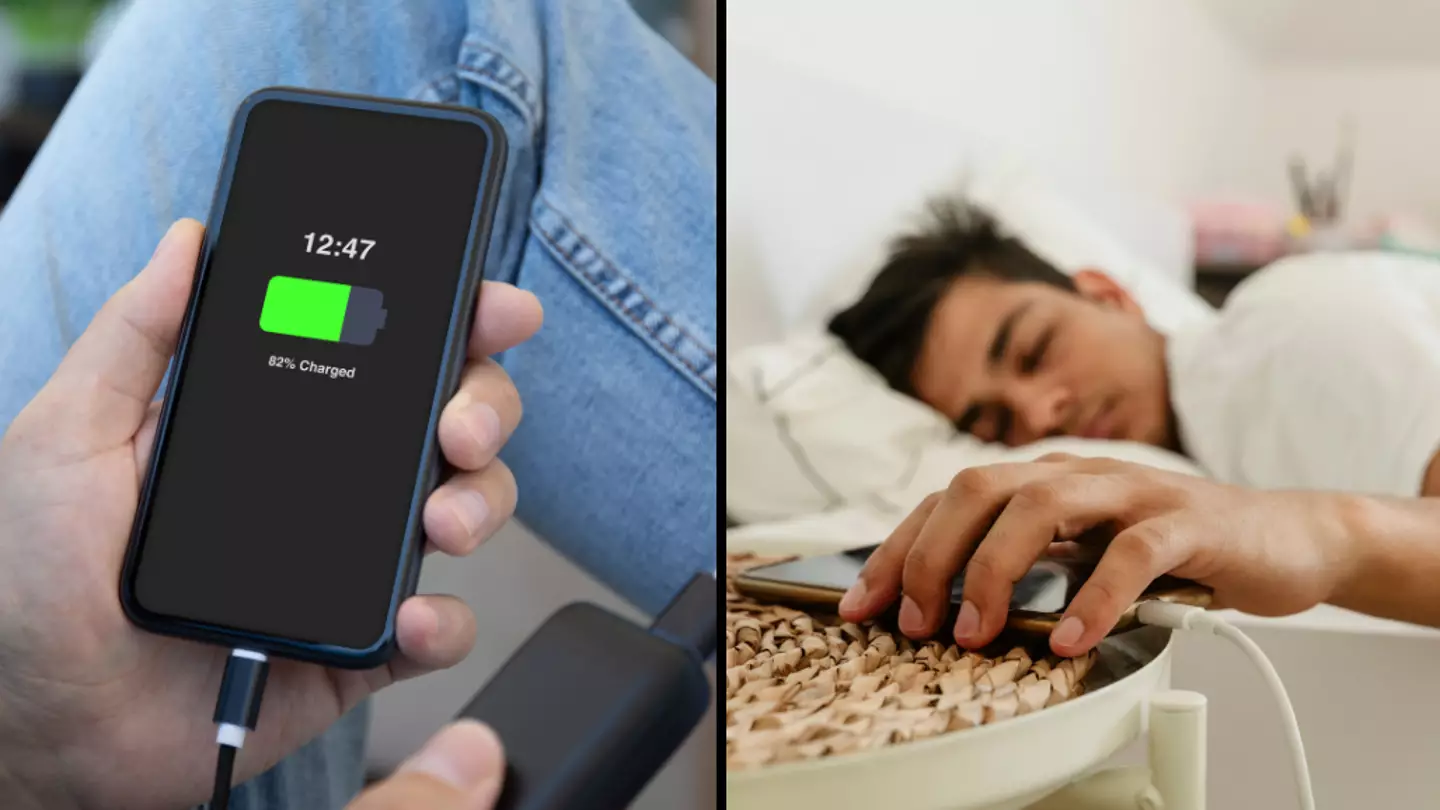
It is an act millions of us do every single evening, but one tech expert has explained why you should never charge your iPhone or Android smartphones overnight.
We’ve all been there. Your phone is on five percent as you chill on the sofa after a long day at work, before you watch a bit of Netflix after it finally dies out, knowing you’ll plug it in overnight ready for the next day ahead.
But it isn’t the best way to charge your phone. Like, not even close to being the way you should be topping up the battery.
And it is a little more than that, with the idea of letting your phone completely die out before being pumped back up to the max one of the worst things you can do with the handset, too.
One tech expert, Max Freeman-Mills, revealed why you should avoid charging your phone overnight. And while saying it isn’t ‘criminally’ bad if you, for example, do plug it in from midnight to 7am, if you can, aim to charge it at other points and locations during your day.
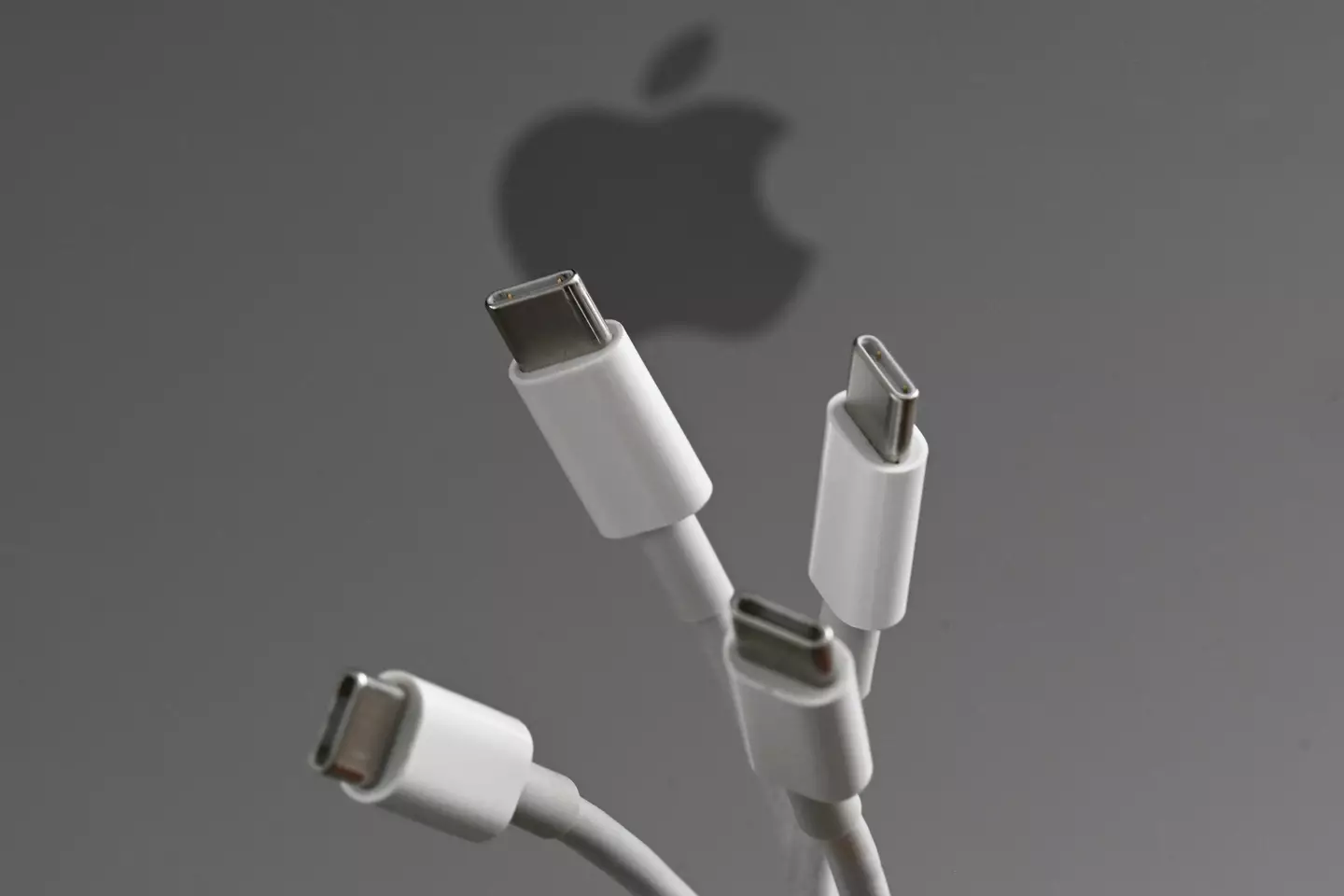
Charging overnight? Avoid if you can (Getty Stock Images)
The reason for this is the battery that is inside the vast majority of smartphones and how that device works best.
In an article with the Press Association, he said: “Millions of us probably all charge our phones the same way – plugging them in when we go to sleep, then unplugging them in the morning.
“While this isn’t criminally bad, it’s not necessarily the best way to charge where battery performance is concerned.
“Lithium-ion batteries, which the overwhelming majority of phones use, actually degrade more quickly if they’re regularly charged to their absolute maximum and then drained to completely empty. A much healthier situation for them is if they bounce between being nearly empty and nearly full – so you don’t want to leave them on fully charged for too long (like the second half of each night’s sleep).”

We’ve all been there (Getty Stock Images)
He added: “iPhones and many Android phones now have charging smarts built-in to alleviate this problem by pausing charging until just before you get up, but you can help this by charging more consciously – for example, at your desk while you work in the morning, rather than overnight.”
The lithium-ion batteries that power smartphones degrade due to a number of reasons including their charging patterns, temperature changes, and the time they’ve used for.
So, when a phone is plugged in overnight, it means that the phone is getting an unnecessary boost. If you plug it in four an eight hour kip, it’ll be charging for roughly four times as long as it needs.
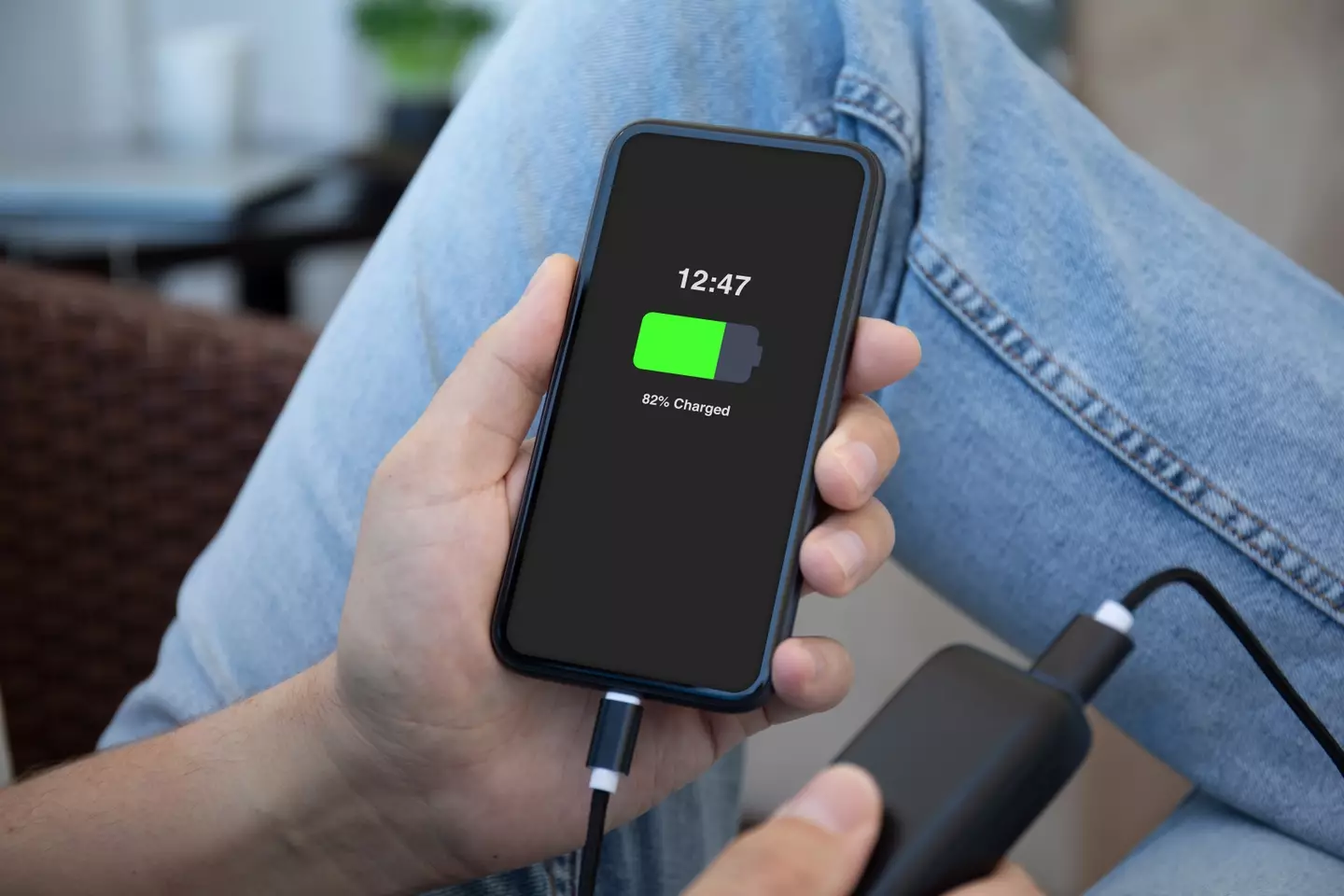
Letting your phone battery die before pumping it right back up to 100% isn’t advisable (Getty Stock Images)
It’s also not the best from a safety point of view. While most phones will stop charging once they reach 100 percent battery to prevent overheating, you are likely to have numerous apps that are still running in the background.
The battery will therefore keep dropping to 99 percent before being topped up in something called ‘trickle charging’, which can can wear a battery down over time.
Ritesh Chugh, an associate professor in Information and Communications Technology at CQUniversity Australia, has previously said: “Trickle charging can wear a battery down over time. That’s why many manufacturers have features to regulate it.
Apple’s iPhones offer functionality to delay charging past 80 per cent. Samsung’s Galaxy phones provide the option to cap the charge at 85 percent.”

These days, we Google pretty much anything and everything. Can’t remember the name of something? Google it. Looking for a phone number? Google it. Need a recommendation? Google it.
But despite Google having the answers for just about everything, there are some phrases that you shouldn’t chuck into the search engine.
Now, an expert has revealed the top phrases you should avoid and why.
Easy loans
It’s always best to look to reputable lenders, instead of blindly Googling for loans.
Scammers sometimes advertise easily accessible loans requiring up-front fees, but in reality, the promised funds never turn up in your bank account.
Ben Van Pelt, founder of cybersecurity company TorGuard, told the Indy100: “Instead of turning to Google for financial aid, seek financial services from recognised banks and lenders.”

It’s best to go via recognised banks or lenders rather than Google for financial aid. (Getty Stock Image)
Customer service numbers
If you’ve ever scoured a website for a customer services number and had zero luck, you’ll know how frustrating it is.
It’s almost like they don’t want you to ring up…
But despite the frustration, don’t be tempted to simply Google for the number instead.
Scammers often purchase fake ads to appear at the top of search results – and the last thing you want is to be ringing up a scammer instead.
Van Pelt explained: “They receive these calls, sometimes hundreds daily, and they convincingly mimic a technician.”

Be careful what you Google. (Tatiana Meteleva/Getty Stock Image)
Money-making schemes
Van Pelt explains that these kinds of opportunities are often pyramid schemes.
A pyramid scheme is an illegal business model which makes money from constantly recruiting others.
“Avoid getting caught in pyramid schemes. For investment opportunities, always consult a reputable investment broker or financial advisor,” he said.

Always avoid pyramid schemes. (Getty Stock Image)
High-paying remote jobs
If you’re looking for a new job, always stick to the reputable websites and agencies.
Scammers often advertise jobs in this way to try and entice those looking for work. In reality, the scammer could be trying to gather your personal information instead.
.jpg)
Be careful who you give your details to. (nomadnes/Getty Stock Image)
Free credit report
You might think you’re entering all of your personal information to get a free credit report, but in reality, there could be a scammer on the other end collecting all the information for themselves.
A fraudster having access to the likes of your date of birth or national insurance number could put you at risk of identity theft.

Be weary of free credit reports. (Getty Stock Image)
Tech support
Scammers often set up fake tech support to try and gain remote access and install malware onto your device.
If you’re trying to get support about your device, make sure you always contact the official manufacturer.
